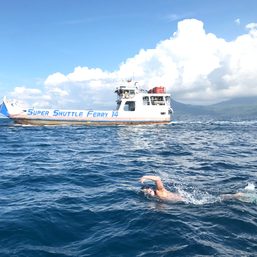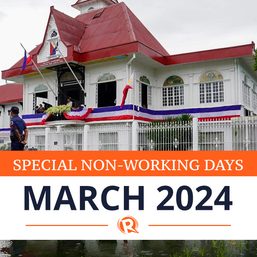SUMMARY
This is AI generated summarization, which may have errors. For context, always refer to the full article.

A popular radio station in Capiz said the provincial government forced them to go off-air by “dismantling” their antenna and cutting off their electricity, in a move that the media outlet deplored as an attack on press freedom.
The provincial government, however, said the station Baskog Radyo is facing a “legal” issue that has nothing to do with press freedom.
“To our Kabaskog, we will temporarily be off-air. The management of Baskog Radyo, compelled by the mandate of Provincial Administrator Edwin Monares and Provincial Governor Nonoy Contreras, has been barred from airing using the 102.5 MHz transmission frequency of Baskog Radyo,” Baskog Radyo said in a statement in the vernacular, posted on its Facebook account.
In a phone interview with Rappler on Sunday, February 7, Baskog Radyo station manager Jay Lavapiez said the provincial government “dismantled” their broadcast antenna and cut off their electricity on Saturday morning, even without any order from the National Telecommunications Commission (NTC) or a warrant from any court.
Baskog Radyo has been renting a space in the government-owned Capiz Government and Business Center since 2018, signing a contract with former governor Antonio del Rosario, who lost his post to Contreras in 2019.
“What happened under the new administration is that we have been exposing corruption in the administration, and they started saying that our antenna was hazardous and needed to be demolished,” Lavapiez told Rappler.
The provincial government has since restored their electricity but only after Lavapiez said he was compelled to sign an undertaking that they will not broadcast under their frequency.
The government’s side
Speaking for the provincial government, special concerns officer Arnold Canto denied in a Rappler interview on Sunday that the government was suppressing press freedom.
“This is not an issue of press freedom but a legal issue about the antenna,” Canto said.
Canto, who works under the office of Governor Contreras, said the provincial engineer assessed that the antenna of Baskog Radyo was “a threat to public safety” that had to be removed.
Canto said officials have been trying to request that the radio station take it down but they were refused. The government finally dismantled it on Saturday under the orders of the provincial administrator.
He said the radio station could have prevented the shutdown had they complied earlier.
‘This is clearly intimidation’
Baskog broadcasts and reports in the vernacular on its Facebook page, which is followed by over 160,000 people.
“This is a clear expression of suppression of the free press and free speech. This is clearly intimidation, muzzling of speech, and the suppression of media from fulfilling their duty and public service,” the station said.
It added: “To our Kabaskog, thank you for all the love. We may be temporarily silenced, but we are on the side of truth.”
The radio station is planning to file an injunction against the provincial government in order to restore its antenna.
The shutdown occurred during a period of government hostility against the press, led by no less than President Rodrigo Duterte and his allies.
The Philippines’ biggest broadcast network, ABS-CBN, went off-air in mid-2020 after Congress, dominated by Duterte’s allies, refused to renew its franchise. – Rappler.com
Add a comment
How does this make you feel?
![[Ilonggo Notes] Taking a heritage walk along Roxas City](https://www.rappler.com/tachyon/2024/06/provincial-capitol2.jpg?resize=257%2C257&crop_strategy=attention)




There are no comments yet. Add your comment to start the conversation.